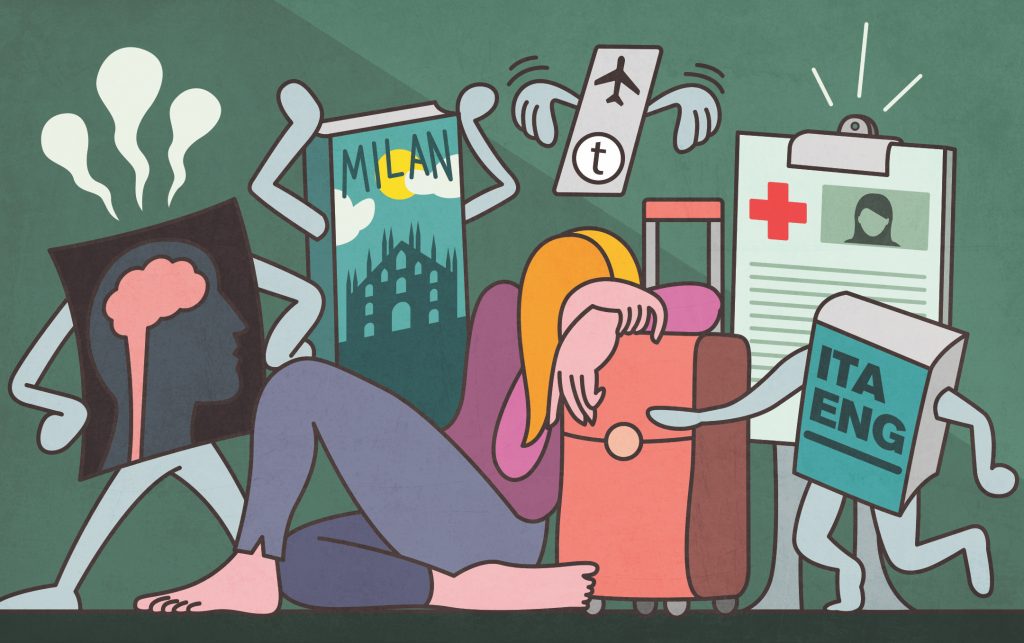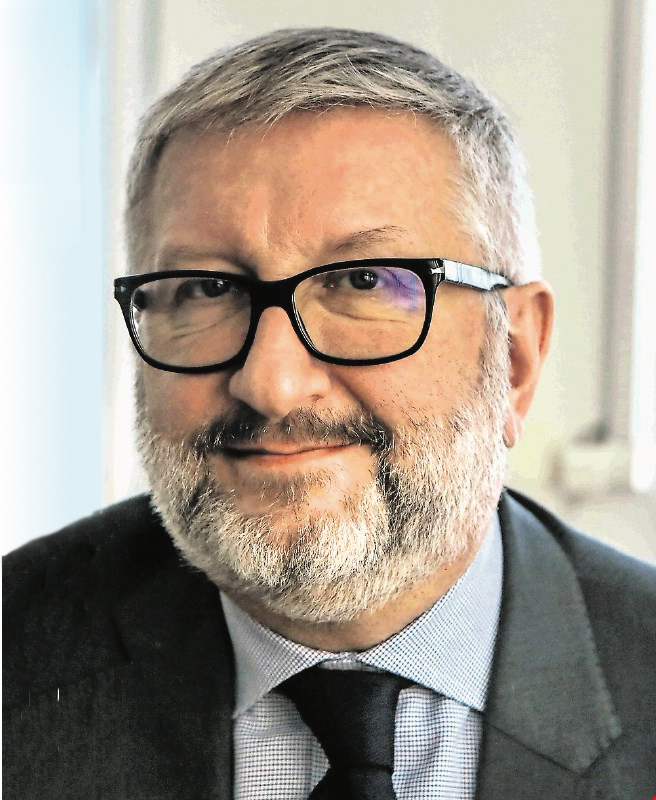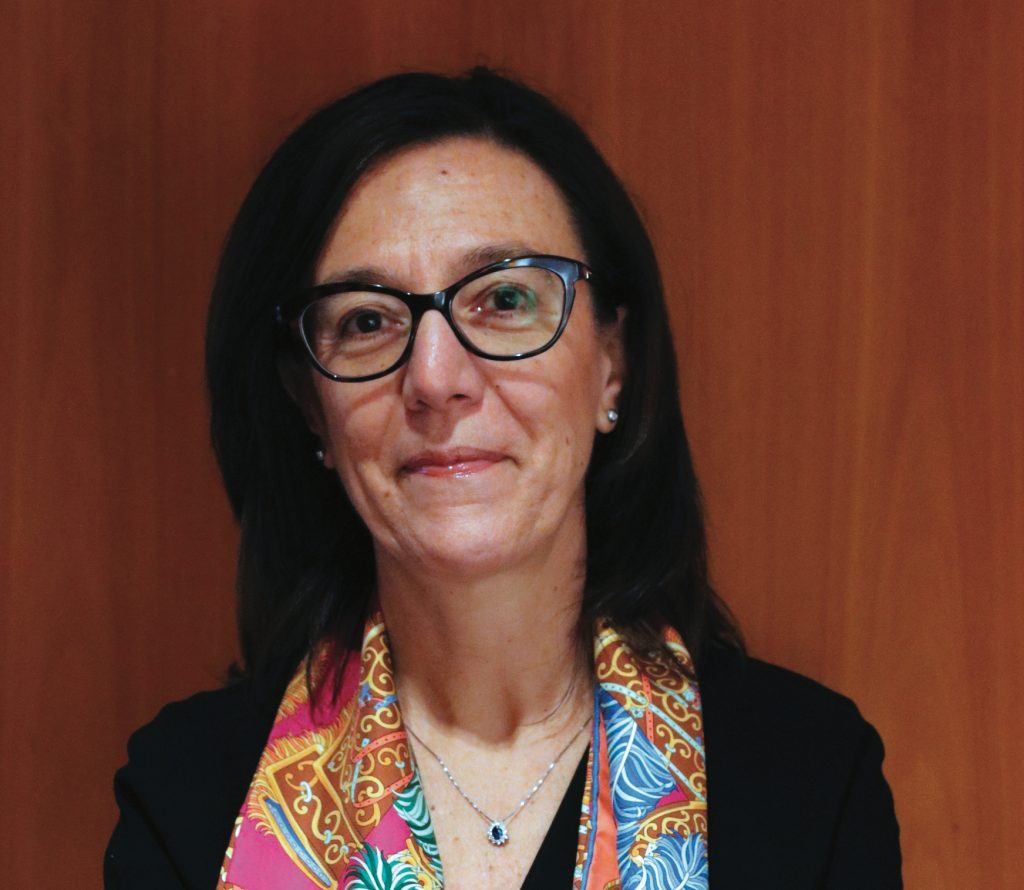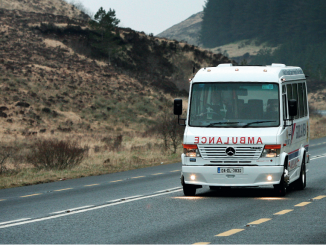The EU cross border healthcare directive – officially the ‘Directive on the application of patients’ rights in cross border healthcare’ – has been in force across member states for more than five years now. It enshrines the right of EU citizens to access healthcare in any EU country, to be reimbursed by their home country, allowing patients to travel abroad specifically for treatment.

The right applies to treatments they would normally be entitled to according to the standard of care in their own health system. Patients pay up front and apply for reimbursement.
But how much are cancer patients actually benefiting? Tit Albreht, Senior Health Services and Health Systems Researcher at the National Institute of Public Health of Slovenia, argues that the directive is not fit for purpose. It does nothing to build the capacity and expertise of health systems, and it may be exacerbating inequalities in access to high-quality cancer care, he says. Antonella Cardone, director of the European Cancer Patient Coalition, disagrees: patients need access now, she says, and with all its flaws the directive helps them get it.
Simon Crompton asked them both to put forward their arguments to clarify where they fundamentally disagree and look for points of agreement.
****
 Tit Albreht
Tit Albreht
The motivation behind the directive was to equalise social services markets in Europe. But its promoters never wanted to focus on how it would work with complex conditions such as cancer. What emerged was based on some specific cases that had been dealt with at the European Court of Justice, such as spectacles prescription, outpatient and diagnostic visits, and single-treatment episodes such as for hip replacement. It is much better suited to simple one-off procedures.
The directive asks patients to pay for their treatment, and then get reimbursed. If you’re just getting some lab tests or a simple diagnostic procedure, this may not be a challenge. But in cancer, that diagnosis is the first step in what is often a complex process.
Even once a multidisciplinary team has decided on the extent of disease and the need for treatment, it may be impossible to predict the final cost of treatment over, say, six months. Treatments might cost in total, say, €100,000 – which could be catastrophic for many people, even if they get reimbursed at a future date.
Subsistence costs and travel costs are not covered by the directive. So if I decided to be treated for cancer in Paris on an outpatient basis, I would need to stay somewhere – possibly for weeks or months – and I’d need someone to come along to support me. The travel and accommodation costs for two people would put such a venture out of most people’s reach.
Language is also a big challenge. We may all think we can get by in a different language, but talking about physical problems, emotions, health issues, is not simple. Being understood by the person advising you, and understanding their advice, might both be difficult. There’s only so much advance planning you can do.
So, as far as cancer is concerned, the end effect of this directive might be greater health inequality in Europe. Mobility is only available to those with higher socio-economic status and health literacy – people with the time and resources to sort out everything beforehand, draw in interpreters, pay for accommodation, get information.
At the same time, the directive does nothing to address current inequalities in cancer care provision and facilities in Europe. People are often simply temporarily moved from countries with poorer cancer care to countries with better cancer care, leaving issues around equalising standards of care unaddressed.
 Antonella Cardone
Antonella Cardone
Tit makes some good, provocative points. I agree with much of what he says. But I don’t see the failings of the directive as a reason to say it is not necessary. On the contrary, they are reasons for us to strive to make it better. The directive is potentially extremely valuable to cancer patients throughout Europe, but it needs to be implemented properly. This is what we are fighting for at the European Cancer Patient Coalition.
Tit says that the end effect of this directive could be greater health inequality in Europe, because only the well-off are able to afford the travel and accommodation costs that come with going abroad for long periods to receive cancer treatment.
I agree there is a problem here. There are social disparities between richer and less well-off people within individual countries that need to be addressed. The way to do this is for each country of origin to allocate a budget to support or reimburse the travel and accommodation costs of its own citizens.
There are other issues that need to be resolved surrounding treatment and reimbursement for cancer patients. For example, if I travel from Romania to France to get treatment, I may be prescribed drugs that are available in France but not in Romania. So what happens when I return home? I still need the drugs, but how am I to get them?
Equally, there may be problems with reimbursement. Say, again, I travel from Romania to France for treatment, and I’m prescribed drugs that are reimbursed in France. When I get home to Romania, the drugs are available – but they are not reimbursed. So who is going to pay?
Both these issues need to be fixed at European level. There must be some sort of harmonisation. But these are not reasons for the cross border agreement not to exist. It needs to be more functional.
Tit Albreht
I believe the European Reference Networks offer far more hope for cancer patients. They were set up to facilitate discussion on complex or rare conditions that require highly specialised knowledge and treatment. They work on the broad principle of helping countries build their capacity in cancer care – not simply asking other countries to take charge of patients you are uncertain about how to proceed with.
For many countries in Europe, particularly smaller countries like my own, this sort of international collaboration works very well, helping us draw on expertise so that we can better address rarer cancers and difficult cases, training and educating our professionals and carers to work better in the future.
Antonella Cardone
The problem with that approach is that a patient with cancer today needs to solve their problem today. If I’m in a country where there’s no appropriate treatment, should I have to wait 10, 20 years for things to improve, for law and policy to change, for health professionals to be trained, for professional culture to evolve?
Thanks to the cross border healthcare directive, I don’t have to wait that long, and can go and get treated in another country if what I need isn’t available in my own country. I have a chance. It may not be the best chance, it may not be perfect, but at least my situation can be improved. And it can happen now, because the directive gives me that right.
I’m not saying we should stop improving capacity at a country level – we must go on doing this. In cancer, improving national capacity is essential, but also hugely expensive, time-consuming and complicated – partly because there are so many rare cancers, each requiring its own expertise. So at the same time as looking at capacity we must improve the directive, because it is an immediate answer available now.
Tit Albreht
My argument is not that the directive should not exist, but that it has some serious flaws in its current form. The point of the directive is to make complex treatments accessible abroad if they are difficult or impossible to access at home. But its faults mean that this is not happening. For most people, treatment is also difficult to access abroad.
Antonella suggests that the way to address the problem of people being unable to afford travel and accommodation is for each country of origin to allocate a budget to reimburse travel and accommodation costs. I have two objections to this.
First, wouldn’t that money be better used to develop capacity at home? Second, such funds are likely to be used up for high-demand procedures such as hip replacements, simple outpatient visits, and diagnostic tests, which are already dominating European travel for health. These procedures are much more accessible than cancer care, and one cannot realistically see funds being earmarked for cancer treatment abroad. Such a specific allocation would not be permitted under any constitutional court because you cannot favour one condition over others.
Antonella defends the directive on the grounds that it provides the prospect of immediate action to help patients get cancer treatment. However, the significant flaws she identifies will take a long time to overcome. For example, she says that issues about variations in drug reimbursement from country to country need to be resolved through harmonisation. But how realistic is it to harmonise such a wide variety of economies? The ratio of GDP between Denmark and Bulgaria is currently eight to one. Such disparities cannot be overcome in the short term.
I also disagree that people will have to wait to see the benefits of European Reference Networks. We do not need to wait 10 or 20 years for improvements that can be achieved today through successfully transferring knowledge via European Reference Networks. It is about updating and upgrading the practical knowledge of medical oncologists, surgical oncologists and radiotherapists. Malta managed to overcome long stays of Maltese patients in London by training local medical oncologists at the Royal Marsden in a matter of three years!
Antonella Cardone
I think in many ways we agree. We both think the directive should exist, but has flaws. We are just seeing things from different perspectives. Tit says we should focus on developing capacity and knowledge at country level rather than cross-border European level. I say we need to focus on both levels. There’s no doubt that the cross border directive should be improved, but it’s a good starting point.
Yes, we need to be pushing more towards European Reference Networks, but we also have to say that these too have their problems. They still lack an IT platform to make them fully operational across all European countries. They have problems with funding, and the European Commission is concerned about their sustainability to the point that they are looking into financial alternatives to public funds. The commission has put in place a working group, including patient representatives and industry, to look at how the financial sustainability of European Reference Networks can be guaranteed in the future.
And then there’s the issue of where these centres of excellence can spread their knowledge. They are not perfect. They are already overloaded. They need a supply of specialised experts and this requires investment in training.
Tit provides the example of improvements in Maltese cancer services after a training collaboration with the Royal Marsden. But training does not always bring benefits so quickly. It takes two to three years to set up a training project and make it happen.
You have to allocate funds and bring in specialists, and to make use of the actual training outcomes at local level, it takes much longer.
So we have a lot of work to do on European Reference Networks to make them effective in cancer, just as we have work to do on the cross border directive. We should, as Tit says, be pushing for harmonisation of health technology assessment across countries so that treatments are consistently available. It’s a huge issue in some countries, and harmonisation would help reduce barriers to introducing innovative treatments and reduce disparities between countries.
Work on all the areas may be slow, but it’s the only way we’re going to help patients properly. All the changes we’ve talked about are complementary. One does not preclude the other. We have to do our best to accelerate the process, which is why, at the European Cancer Patient Coalition, we are putting pressure on MEPs and the European Commission.
Tit Albreht
The directive created new options for patients to be treated across the European Union, but its faults have become increasingly clear. It works very well for patients who need a single simple procedure which does not require a long hospital stay. But in cancer it brings only very limited advantages. For it to bring real benefits, the directive would have to be re-worked or completely rewritten. I believe a much better option would be to strengthen cross-border mechanisms through the use of European Reference Networks, Comprehensive Cancer Centres, or Comprehensive Cancer Control Networks. All of these represent alternatives to single patients seeking care, and at the same time provide both quality assurance and training of professionals at a predefined high level. Obviously, these should be enhanced through national and EU funding. Final benefits would easily overweigh the initial investments.
Antonella Cardone
The directive establishes that all patients have the right to access the best treatment available in Europe regardless of the limitations of their own health system. This could be a powerful lever to drive up quality of care for everyone everywhere in Europe.
At the same time we have to recognise that the directive is far from exhaustive or perfect. For example, health technology assessment should be harmonised across Europe to avoid duplication and unnecessary delays in treatment accessibility in some countries. This will allow cancer patients to move from one country to the other within Europe and at least be reimbursed for the cost of treatment at the same level everywhere. This will help promote equality of access.
Regarding European Reference Networks, they are already a positive consequence of the directive, as with them it is the knowledge that travels rather than the patient. Both the directive and the ERNs are elements towards the vision that we both share of better treatment for all.
As a patient organisation we want all patients across Europe to receive the best quality of care available. There is still a lot of work to be done.





